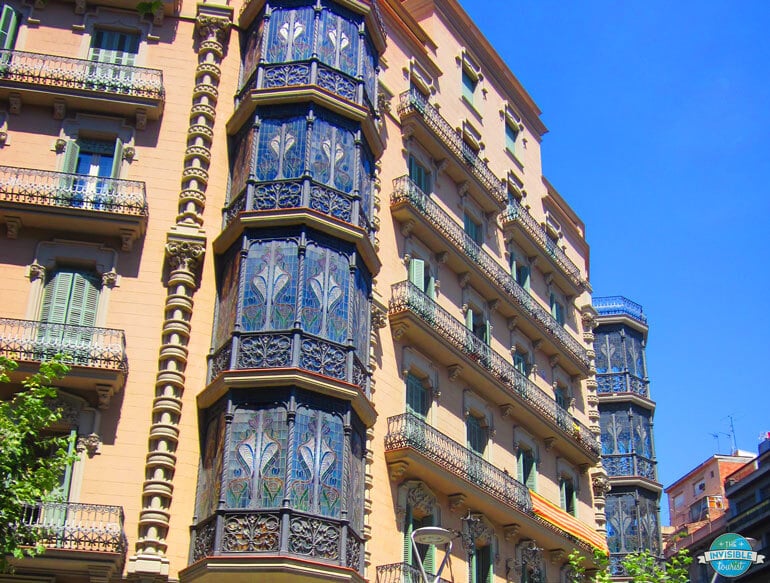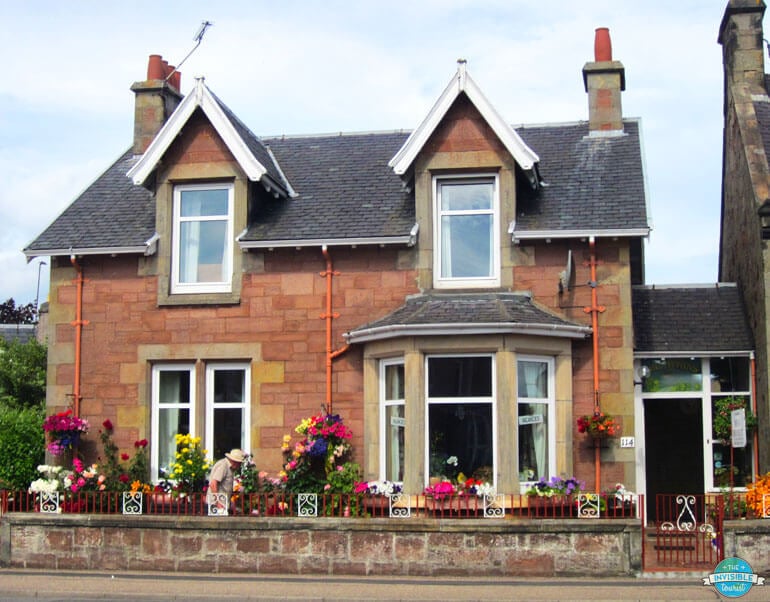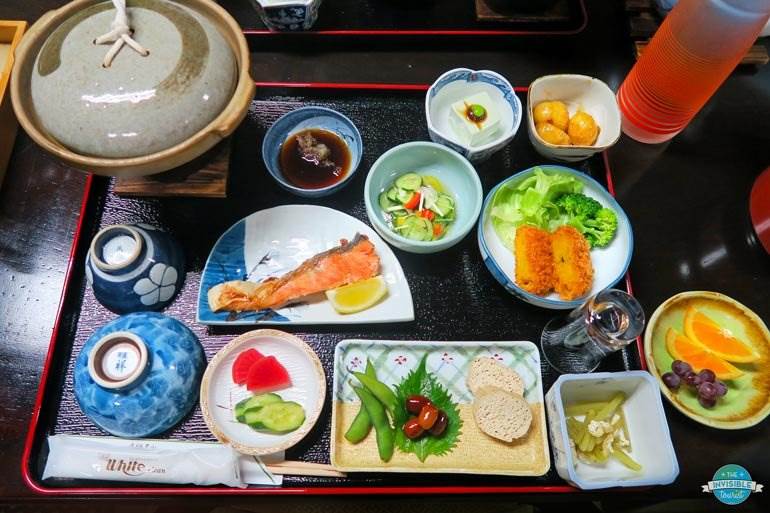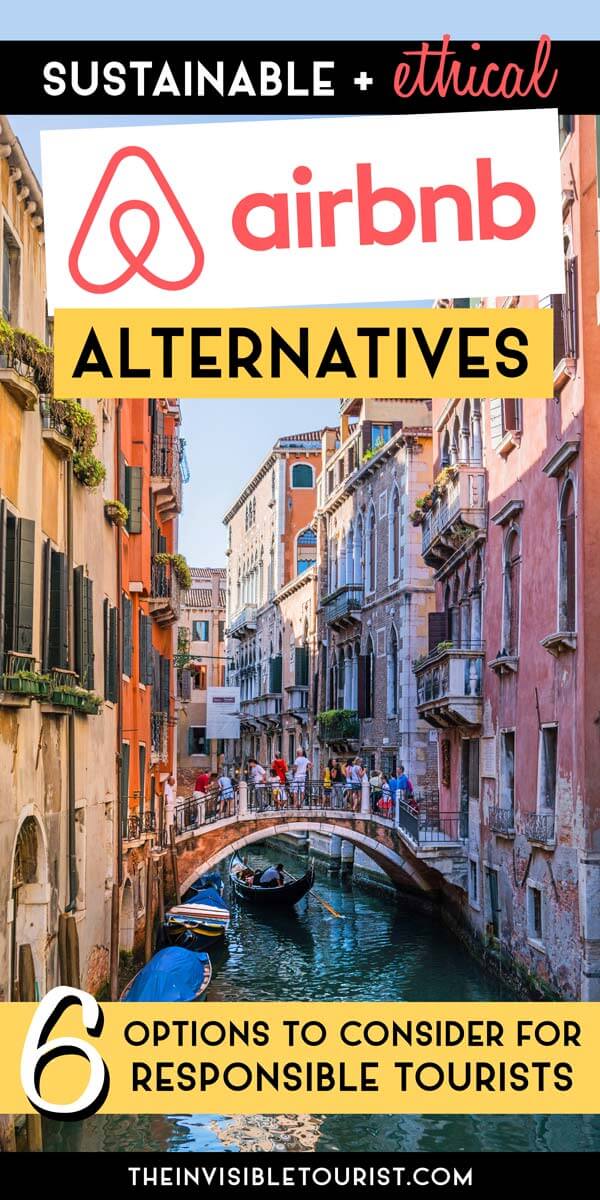6 Ethical Alternatives to Airbnb for Responsible Tourists
If you’ve read my article discussing all the issues with Airbnb, you’ll see by the comments this topic became quite the debate! This leads many of us to ask the question: Are there any ethical alternatives to Airbnb?
I passionately wrote said article in March 2018 as a concerned response to trends I began to notice relating to overtourism in popular destinations. The situation evolved into a monster and as you may already be aware, services such as Airbnb became one of the multiple contributors to overtourism issues.
While my previous article examines problems and Airbnb ethical issues, on a more lighthearted note you’re about to learn some favourable alternatives to help you become more of an invisible tourist on your next adventure.

But what is an invisible tourist? Amongst other things we’re all about making a conscious effort to “blend in” when travelling to help preserve the identities and cultures of the places we visit, rather than diluting them.
By using the following Airbnb alternatives moving forward, you’ll be well on your way to becoming an invisible tourist and avoid contributing to overtourism, too. Read on for more!
With the exception of Booking.com, I am not affiliated with any of these companies and have not tried all these services personally. I am suggesting these alternatives as my travel philosophy aligns with each. Be sure to research further for yourself to determine which option is right for your circumstances. This post contains affiliate links, at no extra cost to you. I may earn a small commission if you click through and make a purchase.

Are there any sustainable & ethical alternatives to Airbnb?
While sharing a room with a local may have begun as the innocent idea behind Airbnb’s founding, its popularity exponentially grew beyond this from 3 million users in 2012 to a whopping 150 million by early 2020. Guests also began to set higher expectations, pressuring Airbnb properties to be more like hotels with the absence of an owner.
Airbnb’s rapid growth resulted in countless illegal listings, companies purchasing entire residential blocks for the sole purpose of renting them short term to tourists and locals being displaced by skyrocketing rents. An anti-Airbnb movement began to sweep through destinations popular with the platform and authorities started to crack down on the service.
After much vetting of accommodation services, here are my sustainable and ethical alternatives to Airbnb for your consideration. While these deliver on Airbnb’s claim of “living like a local”, they won’t inadvertently take long term rentals away from local residents.
In some examples below, it’s good to see we can take inspiration from travel during the good ‘ol days before the sharing economy took off!

Fairbnb.coop
Fairbnb was co-developed in 2016 by concerned European citizens as a response to the damaging effects of unregulated Airbnb. The service is free for homeowners to list their properties, while 50% of the tourist’s payment goes towards funding community projects chosen by locals at the destination.
With the aim of promoting “authentic, fair and conscious tourism”, hosts need to meet a set of criteria:
- Must be local residents (not investors from abroad or property agents). In Barcelona, an Airbnb “host” managed 204 apartments, raking in over €37,000 per day in rental income from tourists.
- Follow local laws and regulations of the destination by reporting data to local authorities.
- Abide by Fairbnb rules such as “one host, one house” principle to promote a sustainable industry. In London, 25% of Airbnb hosts list more than 5 properties.
In cities where homestay accommodation is not regulated, Fairbnb takes the initiative to vet each of their listings and assess any negative impact it may have on the local community. It’s so refreshing to see responsible and sustainable steps being taken to avoid mistakes of the past!
The service has had a very positive response from local residents throughout Europe and is becoming one of the popular alternatives to Airbnb in Spain. Fairbnb now operates in the following cities:
| Amsterdam, the Netherlands | Marseille, France |
| Barcelona, Spain | Porto, Portugal |
| Bologna, Italy | Valencia, Spain |
| Genova, Italy | Venice, Italy |
| Granada, Spain |

Traditional B&Bs
I personally LOVE staying in traditional B&Bs, especially in countries where road tripping is an ideal way to get around. I’ve enjoyed wonderful stays in Japan, New Zealand, Scotland, Belgium and Ireland over the years. There is enough security and privacy, yet the property feels like home (because it is someone’s home).
You’re able to enjoy breakfast and a chat with the host about their city, and they can provide you with insider knowledge about their favourite local establishments or fascinating sites not found in guide books.
When travelling with my partner in Ireland, I’ll never forget the owner’s kindness that gifted us their hanging map showcasing historical sites around the country and even did our washing for us. Or the owners in Scotland who saw we were soaked to the bone from a rainstorm and allowed us to dry our clothes in their boiler room!
B&Bs are regulated and they’re in areas zoned for tourists, but they still hold on to that personalised “small town” feel. Each property is unique and allows the owner’s personality to shine through, which is really nice. Search for all B&B’s at your next destination here.
TIP: You can also check with the local B&B if they offer any incentives for guests to book through them directly instead of using large platforms like Booking.com. While these large platforms provide the opportunity for the property to reach millions of people, they take a percentage of the overall cost of the stay. You can use any money saved to spend in the local community.


Traditional B&B’s in Japan
Here on my popular Japan travel blog, I recommend various accommodation types in my itineraries. B&B’s are known by different names in Japan, these are ryokan, minshuku and shukobu. Each provides exceptional customer service and you’re able to dress in yukata during your stay. The differences are:
- Ryokan – Traditional Japanese inn, sometimes with an onsen (hot spring). Japanese breakfast is provided. I’ve stayed in a ryokan during one of my visits to Kyoto. Search for all ryokans in Japan here.
- Minshuku – Traditionally family run B&B’s with kaiseki meals – multiple courses of miniature meals presented beautifully on small plates. Also with onsen sometimes. I’ve written about my stay in my Takayama itinerary.
- Shukubo – Originally for pilgrims during centuries past, shukubo is the Japanese word for temple stay accommodation. Vegetarian meals are provided and the opportunity to experience morning prayers with monks. Read more about my shukubo stay in Nagano in my 3 weeks in Japan itinerary.


Hotels, Hostels & Serviced Apartments
Many tourists began to move away from regular hotels as it seemed Airbnb worked out cheaper per night. Over the years however, this has become a misconception. By the time Airbnb adds extra taxes and fees on top of their advertised per night price, in some cases it can cost much more than a hotel.
Hotels, hostels and serviced apartments (also aparthotels) are regulated accommodation, meaning they adhere to consistent standards, local laws and are located in zones regulated for tourists or business travellers. This helps to minimise disruptions to any local residents.
A huge benefit of hotels, hostels and aparthotels is they don’t take any long-term accommodation off the market. Tourists are spread throughout a city in the appropriate areas rather than dominating residential neighbourhoods, which helps to preserve the local identity of a destination.
TIP: My personal favourite hotel booking site is Booking.com, which I recommend to readers of this blog. I happily used this service for many years before I ever became an affiliate and still use it today. As one of the world’s largest booking platforms users can enjoy the benefits of a huge range of accommodation options, instant confirmation, free cancellation and much more without any hidden fees.
Search for your next hotel here, hostel here, and if you’d like the option of a fully-equipped kitchenette search for serviced apartments here.
TIP: Where possible, I always aim to try and stay with a local hotel chain rather than a major international one. This helps to directly give back to the local community.

Home Exchange
If the idea of switching lives with someone appeals to you, this could be ideal! It’s possible to stay in someone else’s fully-equipped home whilst they stay in yours for an agreed period through a home exchange.
These services offer unique experiences that aren’t available on regular booking platforms. It works by arranging reciprocal exchanges – where owners house swap on the same dates – or by using an accumulation of points to stay in another property whilst the owner is away.
Staying in a completely residential area not overrun with vacation rentals allows travellers to better blend in with locals, shop where they do, cook meals in the home and even get to know their temporary neighbours. There isn’t anything much more authentic than that.
The entire system is built on trust. Visitors know the importance of treating someone else’s home in a way they’d like their own to be treated.
House swapping may be a great alternative for families who prefer a multiple bedroom vacation rental. A site like HomeExchange requires a yearly membership, but you can exchange homes as many times as you like – you do need to be flexible with dates, though! More info on what to expect here.

Housesitting
Housesitting allows you to temporarily stay rent free in return for taking care of the home whilst property owners are away. This could range from a few days to several months depending on the arrangement.
Most of the time, responsibilities of housesitters include looking after pets, cleaning the home and basic garden maintenance.
According to statistics, pets are the driving factor behind 80% of house sitting arrangements. Allowing a housesitter to mind their fur babies can save homeowners a considerable amount of money in pet care during their absence.
While there are some limitations, housesitting could be a great option if you’re able to work remotely! Some trusted websites include TrustedHousesitters, MindMyHouse and Nomador.

Couchsurfing
With the slogan “Meet and Stay With Locals All Over the World”, couchsurfing involves temporarily staying with a host for free in exchange for allowing others to also stay with you for free. It’s not always necessarily on a couch, sometimes this can be in a spare bedroom or other common area within the home.
While you shouldn’t expect food to be provided, as a guest you’re able to share their bathroom and the host may be willing to show you around the neighbourhood. From my research, couchsurfers have said they’ve made lifelong friends with their hosts/guests, making it a great way to meet people.
This isn’t something I’ve personally tried as I enjoy the privacy of other accommodation styles, but it is a great option for budget-conscious travellers. Stays are always hosted by a local in their home, which was the original intention of Airbnb. This allows for a more authentic and personalised stay.
TIP: This couchsurfing review is transparent about what you could expect addresses common questions from solo female travellers.

Further reading
If you’re interested in learning more, this huge guide to ethical tourism has everything you need to know about the subject including examples to help you be a more informed tourist in future.
Concluding my sustainable Airbnb alternatives
I specifically did not include Stayz, HomeAway or VRBO on this list. I couldn’t find with certainty the measures they take to avoid contributing to issues that have cast a dark cloud over Airbnb.
The common pattern shared by my suggested Airbnb alternatives is that each ensure tourists can stay at a destination with confidence in knowing they aren’t inadvertently taking residential properties away from locals. The even bigger win is a truly authentic local experience, not an artificial one.
Whether you’re happy to sleep on a local’s couch, prefer the privacy of a room or require fully-equipped homes, there is an ethical alternative to Airbnb that aims to improve tourism for locals and tourists alike! If you found this guide helpful please share this with someone you know who has second thoughts about unregulated homestay services to spread the word.
If you want to learn my strategies for how to “blend in” anywhere around the globe to enrich your trip, find out by reading my #1 Amazon New Release Book!
Now it’s over to you to decide what is the best alternative to Airbnb? Did I miss any that you’re aware of? Let me know in the comments below!
While you’re here, why not take a look at all my ideas for responsible itinerary planning, how to be an “invisible” tourist around the globe and much more. Come and follow me on Facebook, Instagram, Pinterest and TikTok for more travel inspiration!
Until next time,

Like it? Pin it! 📌

Featured image & first pin image credit: Pixabay. Second pin mage credit: Pixabay. This ethical alternatives to Airbnb guide contains some affiliate links, at no extra cost to you. I may earn a small commission if you decide to make a purchase and if you do, thanks for your support! This helps with the costs of running my blog so I can keep my content free for you. As always, I only recommend a product or service that I genuinely love and use myself!

An even more unethical approach of vacation rentals is the listing of properties in occupied territories which are, in international law, illegal. This comes from a reader who fears that the treatment of those in occupied territories and their land will merely fuel more resistance in what already appears to be intractable conflict.
Thankyou for this article. Having used the ‘Vacation rentals ‘ on Tripadvisor and later’ Airbnb ‘ too ,I was looking for more ethical choices. I had resorted to using local hotels but find apartments/house more comfortable to stay but it should not impact the local environment /community negatively. Will definitely try suggestions offered here
Thank you, pkm! Glad to have given you some new options for your future trips 🙂
Hi Alyse,
I’m currently doing research to help plan a trip to Japan in the Fall. I heard from another blogger that they suggest to make your first accommodation and then wait until you’ve arrived in Japan to book further accommodations, since it’s likely to be much cheaper since you’re searching with an IP address within the country. My type A personality says no way could I leave it to chance, but my inner penny pincher wants to save some coin. Do you have any thoughts on this?
Thank you so much for your blog btw! It’s amazing!
Angela
Hi Angela!
Thanks for your kind words 🙂
Personally with the popularity of Japan right now after being closed for over 2.5 years, I would never leave my accommodation to chance.
Autumn is the second most popular time to visit after the sakura season, so accommodation can sell out a few months in advance. It’s best to reserve earlier to avoid disappointment, having to stay very far outside of your desired cities and commuting in and out each day wastes precious time you could be spending exploring instead.
In terms of accommodation being cheaper when your IP is in Japan, I’m not sure if there is truth in it 😅 You could try a VPN in your home county and set it to Japan to see if it makes a difference?
In terms of saving something in Japan, it’s usually either time or money – usually not both unfortunately.
Thanks so much for your comment and I hope you have a great trip!
Hi Alyse,
It seems the first 3 alternatives operate while comply to laws. Housesitting and Couchsurfing are small scale personal activities without money involved, but HomeExchange is essentially Airbnb. It shares almost all issues with Airbnb due to unregulation, only difference is Airbnb uses real money for transactions and HomeExhange uses GuestPoints. Many people purchase GPs to “rent” an accomodation. If hosts have no way to cash their GPs at a close price of selling price of HomeExchange, the company of HomeExchange is actually less eithical than Airbnb in my opinion.
Hi Yi,
I wasn’t aware about the issue with HomeExchange, I was under the impression that home owners would use it on occasion to switch properties. But I can understand your point about it becoming like Airbnb if people are constantly coming and going. I will have to dig a bit deeper into this and report back with my findings, as it seems its intention may not be as good an initially thought.
Thanks so much for sharing your perspective and for letting fellow readers know!
Thank you Alyse for your very insightful article from a guest perspective and useful in signposting guest to alternatives to the Airbnb platform. Appreciate also this article sharing ethical alternatives to the one of the more popular Online Travel Agents (OTAs).
In my view Booking.com is similar to Airbnb in providing a brokering service as an OTA between hosts and guests. Whilst the latter platform does share some responsibility with hosts for misbehaviour by guests, the later platform in contrast does seem to be more supportive of misbehaviour by guests who may cause damage to properties booked through their platform. Helpful to learn however your experience using listings on the Booking platform has always been positive.
Whilst I recognise your article focuses on tourists visiting a city away from their home. It is useful to recognise also that some visitors to a location are working away from home, and not travelling for leisure. For business or work travel, it is convenient, cost-effect and safe to stay in self-catering accommodation (apartment/flat or house), instead of a hotel or B&B. The former type of accommodation is preferred by business travellers who are working at locations too far away for the daily commute, but prefer to prepare their own meals or pre-cooking from home, instead of ordering food deliveries. It gives people travelling for work greater control over what they eat and when, as well having having more space that a hotel room and lobby.
Understandable that for leisure visitors, not having to prepare meals is an essential part of being on holiday.
Because of the current global situation, travel to different cities will be limited for at least several more months. However, only time will tell if there are any changes about what type of accommodation to choose when it is safe for leisure travel to resume.
Hi Veronica,
Thanks for sharing your thoughts!
I completely agree with you regarding business travellers staying in aparthotels/serviced apartments if they are working away from home. I have personally had to work abroad for an extended period and stayed in a self-catering serviced apartment, which is why I mentioned them in this article 😊
Thanks again for your comment!
Nice article. Let me just add that in the light of Invisible and Responsible Tourism, we should try and book directly with the BnB owner.
Apart from the benefits of communicating directly with the owner, it saves commission to booking dot com. Rather spend this saved amount in support of the local community at your destination.
Hi Johannes, yes you’re completely right!
That’s something I’ve now included added as a tip under the B&B section. Thanks so much reading and for your input! 😃
Excellent and much needed article! I have one question: I noticed while traveling in Europe that many B&Bs & guesthouses on booking dot com ALSO list the same properties on Airbnb and multiple other platforms. When looking for a B&B on booking, how can we know which ones are ethical or not? Do you always check to see if the same one is listed on Airbnb before booking, and not book it if it is? And I find sometimes this is tough, because they call it by different names on each platform.
Hi Nick, thank you so much! 😃
This is an excellent and very important question. It seems a bit sneaky to call some accommodations by different names on each platform!
It may be easier to determine in some locations than others, and may take a little extra research. The main differences between traditional B&Bs and residential properties in disguise is that traditional B&Bs are a form of hosted stays so the owner/employees should be present. These are the questions I’d ask to determine if a B&B is ethical or not:
1) Is the host going to be present during your stay?
When using the B&B filter on Booking, I’d avoid listings with “apartment” in the title. On Airbnb it mentions whether you’ll have the property all to yourself. The absence of a host and lack of reception/some kind of check in area would make me a bit skeptical as this could mean it’s not an actual B&B but a residential property.
2) Is breakfast provided?
Traditional B&Bs live up to their name – the host should be there to provide breakfast in the morning. This hospitality is what makes it a Bed & Breakfast, after all! Check if the property has its own website and the services they provide during your stay. While breakfast may not be a requirement for all travellers, a traditional B&B will absolutely provide this service. If a full kitchen is provided and it’s not a serviced apartment (aparthotel as mentioned in the article), chances are it’s a residential property.
3) Is the B&B listed on an offical local tourism directory?
Check if the property is registered on a directory with the country’s B&B association. In the times before smartphones, I’d remember hire cars in Ireland, the UK and New Zealand would come with an offical B&B directory that listed regulated places to stay. It was easy to reference by each city, you could phone up to book throughout your trip or simply turn up to check they had vacancies. Examples of websites to use these days would be:
Ireland – irishbnb.com
New Zealand – bnb.co.nz
4) What does the property look like at street level?
Check the Google street view. Traditional B&Bs usually have their name and “Vacancies/No Vacancies” signage out front. Not just appear to be a residential property. However, if the owner is going to be present then you know the residential property will be a hosted stay at least.
5) Is the property listed on multiple platforms?
Google the B&B by name to cross-reference where else it’s listed. What shows up? On Airbnb, I’d also check if the host has more than one listing as that would be a red flag for me personally.
6) Does the owner have a sustainable & ethical commitment to tourism?
If all the above fail, you could always reach out the the owner and ask their purpose for the listing – Do they only lease short term to tourists? Will they be present? Do they have other properties? How many days of the year do they rent their property to tourists? How long have they owned the property? Fairbnb has a set of strict guidelines their hosts need to adhere to as mentioned in the article, so these would be ideal for any ethical host to follow.
I hope that helps! Thanks again for your comment and for reading 😊
Sorry I missed this reply. Thank you so much for the super detailed response and actionable tips!
No worries at all! Thanks again for the great question 😃